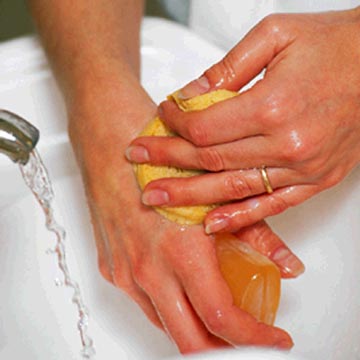Obsessive Compulsive Disorder
Obsessive Thoughts and Compulsive Behavior – Behavior or Thoughts are Senseless or Excessive.
Question: What is Obsessive Compulsive Disorder (OCD)?
Doctor: Obsessive Compulsive Disorder is an Anxiety disorder characterized by uncontrollable, unwanted thoughts and behavior you feel compelled to perform. Briefly, Obsessive mean disturbing thoughts and compulsion mean repetitive behaviors that the reason person feels driven to perform.
Question: Can I have some examples for Obsessive and Compulsion?
Doctor: Sure, Obsession includes concern with contamination, unwanted acts of aggression, unacceptable sexual and religious thoughts and the need for exactness. Compulsion includes excessive cleaning, checking, ordering, counting and repeating routine activities.
Question: Is there any chances to get only Obsessive or Compulsion?
Doctor: Yes, Some person gets only Obsessive thoughts and some person gets only Compulsion behavior.
Question: What are symptoms for Obsessive?
Doctor: Common obsessive thoughts are, A) Fear of germs, dirt and contaminating others. B) Fear of causing harm to yourself or others. C) Fear of losing, you might need. D) Order or Symmetry. E) Excessive focus on religious or moral. F) Sexually violent thoughts and images. G) Superstitious thoughts.
Question: What are symptoms for Compulsion?
Doctor: A) Double checking of things, for example lock, switches, stove. B) Spending a lot of time to wash and cleaning. C) Ordering or arranging things “just so”. D) Counting, repeating certain words or doing senseless things to reduce anxiety. E) Praying excessively.
Question: How to manage the Obsessive Compulsive Disorder?
Doctor: Following treatment is useful to manage the Obsessive Compulsive Disorder.
A) Cognitive Behavior Therapy: CBT involves two main components. 1) Exposure and response prevention: It involves repeated exposure to your obsession. After that you asked to refrain from the compulsive behavior to reduce your anxiety. For example, leaving the house and checking the lock only once (exposure), without going back and checking again (ritual prevention). So this therapy teaches you to not checking the lock at all or again and again. 2) Cognitive Therapy: This cognitive therapy teaching you to responding to you obsessive thoughts without resorting to compulsive behavior.
B) Family Therapy:
C) Electroconvulsive Therapy:
D) Psychosurgery:
Question: Can I have some self help techniques?
Doctor: The basic self help techniques are:
a) Refocus you attention, when you’re experiencing OCD thoughts and urges.
b) Write down your obsessive thoughts and compulsive behavior. Just go through it daily, it helpful to reduce your obsessive thoughts and compulsive behavior.
c) Create your OCT period, don’t avoid that just postponed that. After some trail you will lose the focus on that.
d) Practice some relaxation techniques.
e) Have enough sleep.
f) Adopt healthy eating habits.
g) Keep Regular exercise.
h) Try to avoid alcohol and nicotine.
i) Have connection with family and friends.
j) Possible join an OCD support group.
Whom to contact for Counseling & Treatment
Dr. Senthil Kumar is well experienced Psychologist who treats many cases of with successful outcomes. Many of the clients get relief after attending psychological counseling with him. Dr. Senthil Kumar visits Vivekanantha Homeopathy Clinic & Psychological Counseling Center, Velachery, Chennai. To fix an appointment, please call or mail us:
The “Psychologist” Psychological Counseling Centre’s at
Chennai:- 9786901830
Pondicherry:- 9865212055
Panruti:- 9443054168
Mail : consult.ur.dr@gmail.com, homoeokumar@gmail.com
For appointment please Call us or Mail Us
==–==

